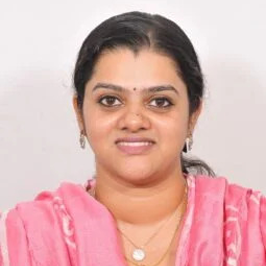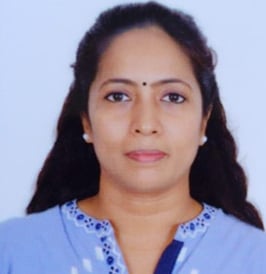Team
ENT, which stands for Ear, Nose, and Throat, is a specialised medical field that focuses on the diagnosis, treatment, and management of disorders and conditions affecting the ears, nose, throat, and related structures of the head and neck. Also known as otolaryngology, ENT encompasses a broad range of medical issues, from common ailments such as ear infections and allergies to more complex conditions like hearing loss, sinusitis, and throat cancer.
Our Experts at Rela Hospital
ENT doctors, also called otolaryngologists or ENT specialists at Rela Hospital, are highly trained medical professionals who provide comprehensive care for patients of all ages, from infants to the elderly. They play a vital role in managing various ear-related issues such as hearing loss, ear infections, balance disorders, and tinnitus. In the realm of nose and sinus health, ENT doctors diagnose and treat conditions like chronic sinusitis, nasal congestion, allergies, and nasal polyps. Additionally, they address throat-related problems, including tonsillitis, voice disorders, swallowing difficulties, and even head and neck cancers.
ENT doctors employ a variety of diagnostic techniques, including physical examinations, imaging tests, and specialised procedures to accurately identify the underlying causes of patients’ symptoms. Once a diagnosis is made, they develop personalised treatment plans that may involve medication, therapies, or surgical interventions. From minimally invasive procedures like endoscopic sinus surgery and balloon sinuplasty to more complex surgeries such as tonsillectomies and cochlear implants, ENT doctors are trained to perform a wide range of procedures to help their patients find relief and improve their quality of life.
Ear
- Otitis media: Middle ear infection
- Otitis externa: Infection of the outer ear canal (swimmer’s ear)
- Tinnitus: Ringing or buzzing sensation in the ears
- Meniere’s disease: Inner ear disorder causing vertigo, hearing loss, and tinnitus
- Cholesteatoma: Abnormal skin growth in the middle ear
- Eustachian tube dysfunction: Difficulty in equalising pressure in the middle ear
Nose
- Sinusitis: Inflammation or infection of the sinuses
- Allergic rhinitis: Allergic reaction causing nasal congestion, sneezing, and itching
- Nasal polyps: Noncancerous growths in the nasal cavity
- Deviated septum: Shifting of the nasal septum, causing breathing difficulties
- Rhinosinusitis: Inflammation of the nasal cavity and sinuses
Throat
- Tonsillitis: Inflammation or infection of the tonsils
- Pharyngitis: Sore throat caused by viral or bacterial infections
- Laryngitis: Inflammation of the voice box (larynx), causing hoarseness or loss of voice
- Gastroesophageal reflux disease (GERD): Acid reflux affecting the throat
- Sleep apnea: Sleep disorder characterised by interrupted breathing during sleep
- Vocal cord nodules/polyps: Abnormal growths on the vocal cords
Head and Neck
- Head and neck cancers: Cancers affecting various structures in the head and neck region
- Thyroid disorders: Conditions affecting the thyroid gland, such as hypothyroidism or hyperthyroidism
- Salivary gland disorders: Infections, tumours, or salivary stone blockages
- Temporomandibular joint (TMJ) disorders: Jaw joint disorders causing pain and dysfunction
It’s important to consult an ENT specialist for a proper diagnosis and appropriate treatment if you are experiencing any specific symptoms or concerns.
When to Visit an ENT Doctor?
You should consider visiting an Ear, Nose, and Throat (ENT) doctor, also known as an otolaryngologist, if you experience any of the following symptoms or conditions:
- Hearing Problems: If you experience any impairment with your hearing like you experience hearing loss, ringing in the ears (tinnitus), and so on.
- Ear Infections: An evaluation by a specialist in ENT may be required if the patient presents with persistent ear pain, ear discharge or frequent ear infections which fail to heal.
- Nasal Congestion: The patient should see an ENT doctor if they are experiencing chronic nasal congestion, difficulty breathing through the nose, frequent nosebleeds or chronic sinusitis.
- Throat Problems: It is recommended to seek medical assistance by the ENT specialist especially if one has persistent sore throat, which makes it difficult to swallow, chronic cough, or voice hoarseness lasting long.
- Tonsil or adenoid problems: Children having repeated tonsillitis or swollen tonsils and adenoids causing airway compression should be referred for ENT review.
- Dizziness and Balance Issues: Dizziness that does not go away, vertigo, or balance problems could be signs of a problem in the inner ear. These are issues that the ENT specialist would have to handle.
- Sleep Apnea and Snoring: A specialised ENT doctor can perform tests for the symptoms associated with sleep apnea like loud snoring, daytime sleepiness or pauses in breathing while asleep.
- Thyroid Nodules or Problems: An ENT expert will evaluate and treat adequately any thyroid nodules, enlarged thyroid glands, other thyroid related problems.
- Head and Neck Masses: Ensure proper check-ups if you find a swelling on your neck or in the head area especially.
- Facial Trauma: The patients will undergo a specialist examination for any facial and head injuries involving ears, nose or throat with view of discovering any damage caused in such areas.
If you display any of these symptoms or have concerns regarding your ear, nose, or throat health, an ENT consultant will carry out comprehensive assessment and necessary management.
What is an ENT?
A specialized medical practitioner called an Ear, Nose, and Throat doctor or an otolaryngologist treats diseases affecting ear, nose, throat and adjacent parts of the head and neck region. ENT specialists undergo training for various health complications like deafness, ear infection, sinusitis, congested nose, throat problems, sore throats, tonsils and adenoids related issues, vocal and swallow defects plus other maladies occurring at the upper parts of The are equipped with a wide range of diagnostics and surgical facilities. These facilities make it possible to provide health services for both children and elder people.
Where do I get the suitable Otolaryngologist in Chenai?
If you are looking for the top ENT specialist in Chennai, consider seeking consultation in RelaInstitute & Medical Centre that has a highly experienced staff and modern equipment. Rela Institute & Medical Centre with its good name offers full range diagnostics that include treatment to several ear, nose, and throat problems. Chennai’s ear, nose, throat (ENT) experts have built reputations based on diagnoses and treatment of multiple ENT conditions together with individualized therapy for every patient. If you select Rela Institute & Medical Centre, you are assured of superior medical practice and customised treatment options for your unique issues.





